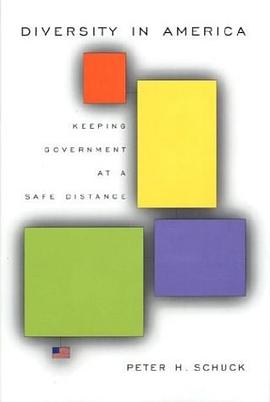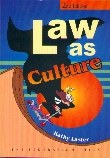

具体描述
America is the first society in history to make ethno-racial diversity an affirmative social ideal rather than viewing it as a fearful menace, as almost all other societies still do. Since the 1960s, America has pursued this ideal in many forms - not only to remedy past discrimination against minorities but also to increase diversity for its own sake. It is high time for an accounting. How diverse are we now and what can we expect in the future? Why do we, unlike the rest of the world, think that diversity is desirable and that more of it is better? What risks does diversity pose? What are the roles of law, politics and informal social controls in promoting diversity? How can we manage diversity better? In this book, Peter H. Schuck explains how Americans have understood diversity, how we came to embrace it, how the government regulates it now, and how we can do better. He mobilizes a wealth of conceptual, historical, legal, political and sociological analysis to argue that diversity is best managed not by the government but by families, ethnic groups, religious communities, employers, voluntary organizations and other civil society institutions. Analyzing some of the most controversial policy arenas where politics and diversity intersect - immigration, multiculturalism, language, affirmative action, residential neighbourhoods, religious practices, faith-based social services, and school choice - Schuck reveals the conflicts, trade-offs, and ironies entailed by our commitment to the diversity ideal. He concludes with recommendations to help us manage the challenge of diversity in the future.
作者简介
Peter H. Schuck is Simeon E. Baldwin Professor of Law, Yale University
目录信息
读后感
评分
评分
评分
评分
用户评价
我拿到这本书的时候,脑子里闪过的第一个想法就是,它肯定会探讨美国的种族问题。毕竟,这是美国多元性中最显眼也最复杂的一环。我一直对美国的种族关系史感到好奇,想知道为什么在看似开放和自由的社会里,种族歧视的阴影依然挥之不去。我希望这本书能够提供一些超越简单指责的分析,深入探讨种族歧视产生的根源,以及它如何在制度层面、社会文化层面以及个人心理层面得以延续。是否会有对不同种族群体所经历的独特历史创伤的描绘?比如,非裔美国人经历的奴隶制和吉姆·克劳法,亚裔美国人所经历的排华法案和日裔美国人的强制拘留。这些历史的印记,是如何塑造了他们今日在美国社会的地位和认同?我更希望这本书能够描绘出,在种族张力之下,不同族裔群体之间是如何寻求理解、和解甚至合作的。是否有关于跨种族联盟的案例?是否有关于文化交流和融合的生动描述?仅仅揭示问题是不够的,我更想看到的是,在这个充满挑战的多元社会中,人们是如何努力去构建一个更公平、更包容的未来的。如果这本书能引用一些社会学、心理学或历史学的研究成果,去解释某些现象,我会觉得更加扎实。我尤其期待它能触及那些关于身份认同的讨论,当一个人身处一个多元文化的环境中,他如何定义自己的身份?这种身份认同是否会随着时间和经历而改变?
评分读到《Diversity in America》这个书名,我脑海中立刻浮现出美国社会中形形色色的社群和组织。从各种以兴趣爱好为基础的俱乐部,到倡导特定社会议题的倡导团体,再到宗教社群、民族互助会,美国社会充满了各种各样的社群构成。我期待这本书能够深入探讨,这些多元的社群是如何在美国社会中运作的,它们又如何影响着社会结构和公共议题。它是否会分析,不同社群在凝聚力、组织形式、活动模式上的差异?例如,某个地方社区的居民如何通过共同的努力,改善居住环境;或者,某个环保组织如何通过抗议和倡导,推动相关政策的改变。我尤其关注书中是否会探讨,这些社群在塑造个体身份认同、提供社会支持方面的作用。一个社群的成员,是如何在集体活动中找到归属感,并形成共同的价值观的?我希望这本书能够提供一些关于社会网络、集体行动理论等方面的分析,来帮助我理解这些社群现象背后的逻辑。它能否触及那些关于社会资本、公民参与的讨论,以及这些社群如何成为民主社会的重要组成部分?我期待它能提供一些关于不同类型社群的案例研究,来展示美国社会多元化运作的丰富图景。
评分拿起《Diversity in America》,我第一时间想到的便是美国的社会阶层问题。美国常被描绘成一个“机会均等”的社会,但现实往往是复杂的。贫富差距、阶层固化等议题,一直困扰着美国社会。我希望这本书能够深入剖析,美国社会不同阶层之间的差异,以及这种差异是如何在经济、教育、医疗、住房等各个方面体现出来的。它是否会提供一些关于美国社会流动性的研究数据?比如,一个人出身于哪个阶层,对他的未来发展有多大影响?我尤其期待书中能够探讨,不同社会阶层在文化、价值观、生活方式上的差异,以及这种差异是如何影响他们在美国社会中的参与度和话语权的。是否会有对工人阶级、中产阶级、精英阶层等不同群体的生活图景的描绘?他们如何看待社会问题?他们的政治立场和消费习惯又有哪些不同?我希望这本书能够超越简单的经济学分析,去深入探讨阶级认同、阶级意识以及阶级之间的互动。例如,不同阶层在教育资源获取上的不平等,如何进一步加剧了阶层固化?不同阶层在政治参与上的差异,又如何影响了美国的民主进程?我期待它能引用一些社会学、经济学等领域的研究成果,来为读者提供更具说服力的论证。我更希望它能触及那些关于社会公平的讨论,探讨美国社会在解决贫富差距、促进阶层流动方面所面临的挑战和可能的解决方案。
评分我拿到这本书的时候,脑子里立刻联想到的是美国社会中那些丰富多样的性别认同和性取向群体。长期以来,围绕着性别平等和LGBTQ+权利的议题,一直是美国社会讨论的焦点,也是其多元性的重要体现。我非常期待这本书能在这方面提供深入的见解。它是否会梳理美国社会在性别观念上的历史演变?从早期对女性角色的刻板印象,到后来的女权运动,再到如今对非二元性别和多元性取向的接纳和认同。我希望这本书能描绘出不同性别群体,以及LGBTQ+群体,在美国社会中争取平等权利的艰难历程,以及他们是如何通过各种形式的行动,来改变社会观念和法律法规的。我特别关注书中是否会探讨,这些群体在美国社会中的具体生活经验,他们所面临的挑战,以及他们如何建立自己的社群和文化。例如,关于同性婚姻合法化的过程,跨性别者在美国社会中遇到的法律和生活障碍,或者不同性别认同群体在艺术、文学、政治等领域所做出的贡献。我希望这本书能够以一种客观、尊重和富有同情心的方式,来呈现这些多元化的存在。它能否深入分析,性别和社会性别认同的多元化,如何与种族、阶级、宗教等其他社会因素相互交织,形成更复杂的社会动态?我期待它能提供一些关于社会心理学、性别研究等方面的理论视角,来帮助我更好地理解这些议题。
评分这本书的封面,让我不禁联想到美国社会的“移民故事”。《Diversity in America》这个名字本身就暗示着,移民是构成美国多元性的重要基石。我一直对不同时期、不同背景的移民群体在美国社会中扮演的角色感到着迷。我希望这本书能够深入探讨,移民如何塑造了美国的经济、社会和文化。它是否会追溯那些早期的欧洲移民,他们是如何在美国东海岸建立家园,并发展出新的社会结构的?有没有关于20世纪初来自亚洲和拉丁美洲的移民浪潮,他们所面临的挑战和机遇?我尤其关注书中是否会描绘,不同移民群体在适应新环境、融入美国社会的同时,又如何保持自己的文化传统,并为美国社会带来新的活力。例如,关于唐人街的形成和发展,或者意大利裔、爱尔兰裔等群体在美国社会中的地位演变。我希望这本书能够提供一些关于社会学、人类学等学科的理论视角,来帮助我理解移民过程中的文化冲击、身份认同以及代际差异。它能否触及那些关于“美国梦”在移民群体中的不同解读?我期待它能提供一些关于移民政策、移民融入以及反移民情绪的分析,来展示美国移民历史的复杂性和动态性。
评分阅读《Diversity in America》这本书,我立刻联想到的是美国社会中那些丰富多样的文化表达形式,从音乐、电影、文学到艺术、时尚,其多元性毋庸置疑。我一直对美国文化如何吸收、融合、创新各种外来元素,并最终形成独具特色的“美国文化”感到好奇。我希望这本书能够深入探讨,不同文化背景的群体是如何在美国这片土地上,创造出丰富多彩的文化成果的。它是否会追溯爵士乐、蓝调、摇滚乐等音乐形式的起源,以及它们如何反映了不同族裔群体的经历和情感?有没有关于好莱坞电影如何塑造美国主流叙事,但同时也开始日益多元化的讨论?我尤其关注书中是否会涉及那些非主流的、边缘化的文化表达形式,比如独立电影、地下音乐、街头艺术等等,它们是如何在美国的文化版图中占据一席之地的,又如何挑战着主流的文化规范。我希望这本书能够提供一些关于文化理论、符号学等方面的分析,来帮助我理解这些文化现象背后的深层含义。它能否触及那些关于文化身份认同的讨论,当一个艺术家或创作者身处多元文化的环境中,他如何汲取灵感,又如何表达自己的独特视角?我期待它能提供一些关于文化交流、文化冲突以及文化融合的案例,来展示美国文化多元性的 dynamism。
评分当翻开《Diversity in America》这本书时,我脑海中立刻浮现出美国这个国家 vast landscape of regional differences,地域差异是美国多元性中一个常常被忽视却又至关重要的维度。从东海岸的繁华都市到西部的大漠孤烟,从南方的历史厚重感到着北方的严谨工业,不同的地理环境、历史发展轨迹和移民构成,必然造就了迥异的文化、习俗、价值观乃至政治倾向。我期待这本书能够深入挖掘这种地域性的多元。它是否会探讨,例如,加州与德克萨斯在经济模式、人口结构、文化认同上的根本性区别?新英格兰地区的教育传统与南方地区的保守观念之间存在的张力?或者,中西部地区与沿海地区在生活节奏、社会交往方式上的差异?我希望书中能够提供具体的案例分析,来展示不同地区在历史进程中如何形成了独特的身份标识,以及这些标识又如何在当今的美国社会中得以延续或演变。例如,关于“南方绅士”的刻板印象,以及它背后复杂的历史和社会根源;或者,关于“硅谷精神”如何塑造了加州创新文化。更进一步,我希望这本书能够探讨,这种地域性的差异是如何影响美国的政治格局,比如各州在总统选举中的投票倾向,以及在国家政策上的立场分歧。它能否触及那些关于“美国梦”在不同地区的不同解读?我期待它能提供一些关于人文地理学、社会学等学科的理论视角,来帮助我理解这些复杂的地域性多元。
评分从书名《Diversity in America》来看,我猜测这本书必然会涉及到不同宗教信仰在美国社会中的存在和互动。美国的立国原则之一便是政教分离,但历史上,宗教始终扮演着重要的角色,无论是新教伦理对美国经济发展的影响,还是不同宗教社区在美国社会中的融合与隔阂。我好奇这本书会如何阐释这种复杂的关系。它是否会探讨,新教、天主教、犹太教、伊斯兰教、佛教等不同宗教传统,是如何在美国的土壤上落地生根,并且与美国的世俗文化相互渗透的?有没有关于不同宗教群体在公共领域中的角色和影响的讨论?例如,宗教组织在社会福利、教育、慈善事业中的贡献,或者在政治运动和道德辩论中的参与。我尤其关注那些关于宗教自由的挑战和边界的讨论。当不同宗教的价值观念发生冲突时,美国社会是如何进行调和的?又或者,是否存在某些宗教群体在美国社会中遭受了不公平的对待?如果书中能提供一些具体的历史事件或法律判例,来展示宗教多元性在美国的演变过程,那将极具启发性。我期待它能超越简单的列举,去深入分析宗教信仰如何影响个体的生活方式、家庭结构,以及社区的凝聚力。同时,我也好奇,在日益世俗化的今天,宗教在美国多元性中的地位是否正在发生变化?这本书能否提供一些关于这一趋势的观察和分析?
评分初读《Diversity in America》,我的脑海中立刻浮现出美国这个国家宏大而又矛盾的画卷。想象一下,一个国家,从北美原住民的古老文明,到欧洲殖民者的到来,再到非洲奴隶的强制迁徙,以及来自世界各地的移民浪潮,这本身就是一个多元性演变的史诗。我一直对这种历史进程中的碰撞与融合感到着迷。这本书会不会去深入剖析,不同族裔群体在美国的土地上,是如何在相互学习、相互影响中,逐渐形成一种独特的“美国性”?我期待它能讲述一些被主流叙事所忽略的故事,比如那些默默无闻的移民社区如何在美国的城市角落扎根,如何保留自己的文化传统,同时又如何参与到美国的社会建设中。我希望书中能够有具体的历史事件作为支撑,比如不同移民群体在特定历史时期所面临的挑战和机遇,以及他们如何通过集体行动来争取权益。更进一步,我希望它能探讨,这种多元性是如何在经济、政治、文化等各个领域产生影响的。例如,不同文化背景的创新思维,是否为美国的科技发展或艺术繁荣注入了新的活力?不同社会群体的诉求,又如何推动了美国的政治改革和社会进步?这本书能否提供一些量化的数据或具体的统计,来佐证其观点,会让我觉得更有说服力。我尤其关注那些关于社会流动性、阶层固化以及不同群体在教育、就业、医疗等资源获取上的差异性。这些都是衡量一个社会是否真正包容和多元的重要指标。
评分这本书的封面设计着实吸引人,大胆的色彩碰撞和抽象的几何图形,似乎在暗示着书中内容的多样性与复杂性。拿到手里,纸张的质感也相当不错,微微泛黄的内页散发出一种沉静的学术气息,但又不失现代感。我迫不及待地翻开第一页,期待着它能像封面一样,为我展现一个充满惊喜的“美国多元性”图景。我对这本书的期待很高,希望它能不仅仅停留在表面的罗列和概括,而是能够深入挖掘美国社会内部不同群体之间互动、融合、冲突与演变的深层逻辑。我尤其希望它能提供一些新的视角,去理解那些在历史长河中被边缘化或被忽视的声音,去探讨那些看不见的社会结构如何塑造了美国的多元面貌。如果这本书能够提供一些鲜活的案例研究,或者引人深思的理论框架,那就更好了。我希望它能带我走进那些真实的生活场景,去感受不同文化背景的人们如何在同一个国度里寻找自己的位置,又是如何共同构建着这个国家独特的身份认同。对于“多元性”这个概念,我一直认为它不仅仅是指种族、民族的差异,更包括了思想、信仰、生活方式、社会阶层等方方面面的丰富性。我期待这本书能够跨越这些表面的分类,去揭示更深层次的多元共存与张力。我已经准备好投入几个晚上的时间,沉浸在这本书的世界里,希望能从中获得知识上的启发,也能在情感上有所触动。
评分 评分 评分 评分 评分相关图书
本站所有内容均为互联网搜索引擎提供的公开搜索信息,本站不存储任何数据与内容,任何内容与数据均与本站无关,如有需要请联系相关搜索引擎包括但不限于百度,google,bing,sogou 等
© 2026 book.quotespace.org All Rights Reserved. 小美书屋 版权所有




















